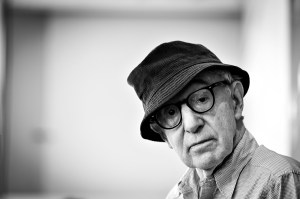Must we approve of an author’s private life in order to enjoy his or her books? Possibly not, to judge by the continuing popularity of writers as diverse as Charles Bukowski, Allen Ginsberg, P.L. Travers, Roald Dahl and Norman Mailer, to name but a few of those whose domestic affairs have fallen short of the temperate or monogamous ideal. And what of the sage of Cornish, J.D. Salinger, most of whose interactions during his long years of New Hampshire exile involved hanging around with local teenagers? In 1972, a fresh-faced journalism student named Joyce Maynard left college and went to live with the 53-year-old author of The Catcher in the Rye at his invitation. After eight months, she was unceremoniously dumped. “He put two $50 bills in my hand and instructed me to clear my things out of his house and disappear,” Maynard recalled.
The question recently arose again in regard to the schoolteacher-turned-author Blake Bailey, whose biography of John Cheever won the 2009 National Book Critics Circle Award, among other honors. Bailey’s subsequent life of Philip Roth was hailed on the front page of the New York Times Book Review as “a narrative masterwork both of wholeness and particularity, of crises wedded to character, of character erupting into insight, insight into desire and desire into destiny,” which somehow sounds like a bad Roth parody, but one takes the point. More succinctly, the Washington Post described it as “a colorful, confident and uncompromising biographical triumph.”
One way or another, Bailey was at or approaching what seemed like the apex of a brief but already glittering literary career. By early 2021, he apparently had it all: a loving family, critical plaudits, commercial success. But then things suddenly went south. The Roth biography was “paused” by its original publisher, W.W. Norton, while Bailey was simultaneously dropped by his literary agency, roundly denounced by some of the very critics who had praised him just days earlier, and in general subjected to a spectacular public humiliation.
How did it all go wrong? There was a first intimation of disaster in February 2018, when, as Bailey writes in his new memoir:
I was sitting at my desk with my phone pressed to my ear, on hold with somebody or something, when I got an incoming call from my editor at Norton, Matt Weiland.
“Hey Matt. I’m on hold. Is it important?”
“You’ve been accused of a crime.”
The allegation in this case was that three years earlier, Bailey, who was married with a young daughter, had had “nonconsensual anal sex” with a woman and, rather strikingly, that there were two witnesses to the act. We needn’t rehearse all the details here, except to say that the incident basically came down to one of those situations in life where people are sleeping over after a long, liquor-logged dinner party and, according to Bailey, what had begun as a bit of “tipsy canoodling” ended up with him having sex with one of the other house guests. Other than the breach of wedding vows, he says his only offense in the whole matter was that he’d first forgotten his partner’s name, then failed to drop her some cordial note – “Hoping we meet again, inviting her to keep in touch, whatever” – after the fact. There was also the ill-advised email he later saw fit to send his accuser, which ended: “I appeal to your decency… I have a wife and young daughter who adore and depend on me, and such an accusation, even untrue, would destroy them.”
As it turned out, this was a mere overture to what was to come in 2021. In short order following the publication of Philip Roth: The Biography by his new publisher, Skyhorse, Bailey was accused of multiple offenses by his former middle school and college-age students, including rape, sexual harassment and grooming. These were obviously serious allegations in themselves, but the accused was definitely guilty of spectacularly poor timing, bringing out his biggest book yet at the apogee of the #MeToo movement and the concomitant extralegal judgment meted out on transgressors by the mainstream publishing industry.
Nor did it help that the subject of Bailey’s book was widely regarded as a sexual misanthrope. Philip Roth died in 2018, but his largely admiring biographer was a proxy target for the likes of the Washington Post, which modified its former praise by writing of both men: “A misogynistic culture… doesn’t happen because one dude does a bad thing. It happens when like-minded dudes are allowed to be one another’s gatekeepers, and the gatekeepers of broader culture, when faults are allowed to go unexamined, and so they instead spread.”
Guilty as charged? It’s a moot point. Any teacher of teenage girls, like Bailey, who in later years invites one or more of his former students to have sex with him might be said to be complicit in his own downfall. As is common in these situations, several of the aggrieved or allegedly assaulted women preferred to remain anonymous, or to stay off the record. One who did speak out, Dr. Bridget Anderson, a linguistics professor at Old Dominion University in Virginia, accused Bailey of assaulting her in a hot tub at a creative writing retreat, then of stalking her for two years back on campus. The harassment only stopped, she said, after she held a knife to his throat when he cornered her in the university’s deserted mail room. Bailey, who admits to making questionable choices elsewhere in his private life, vehemently denied his accuser’s claims, and branded her “delusional.”
Within a few days of what Bailey characterizes as “the whole shitshow” of allegations (as opposed to any criminal charges, none of which were ever preferred) breaking against him, the once lionized author and globetrotting public lecturer was reduced to living in a friend’s pool house in Oklahoma, dealing with headlines like the Daily Mail’s “SEX PEST” and learning both that his Roth biography was being pulped and that Roth’s estate had demanded that he return Roth’s private papers so that a future life could be undertaken by a biographer of less equivocal morals.
Whatever you make of him, Bailey writes about all this in a tone that is, for the most part, objective and insightful – and frequently shot through by dry humor. After moving into a friend’s house, the freshly disgraced author agreed to a Zoom interview with an Italian journalist which seemed to go well enough, under the circumstances. It was only when reviewing the video, posted the next day, that Bailey realized he had been filmed with his host’s statue – an erotically posed female nude – looming out at the viewer from over his shoulder. Canceled Lives is rather like that: sardonic, wry, sometimes confessional, exculpatory – all with the author routinely testing the bounds of acceptable literary taste with his frank depictions of male sexuality and vulgarity.
It didn’t help that the subject of Bailey’s book, Philip Roth, was widely regarded as a sexual misanthrope
At heart, this is not so much a book about love as about death. There’s a moving account of the long decline of Bailey’s elder brother Scott, who struggled with drug addiction and crime before committing suicide in his thirties. The author describes witnessing the end of the heavily sedated Roth, surrounded not by family members but by old lovers, colleagues and employees. And overlaying it all is Bailey’s dying father Burck, an accomplished trial lawyer who’s portrayed as a slightly more earthy, and censorious, version of Atticus Finch. A reader would need a heart of stone to remain unmoved by some of the dialogue between Blake and Burck, who lived long enough to see his son both briefly fêted for his Roth biography – and then denounced as a sex pervert. “As you may already know,” Bailey writes to his father three days after the scandal broke: “I am ruined.”
Expecting another well-earned paternal rebuke, he instead reads, in his father’s reply: “I want you to know I am here for you… Stay strong, be brave, aim high. Tomorrow will be different than today. Time will help. I love you. Papa.”
Not long afterwards, there’s a scene in Burck’s death room in which Blake, swallowing his distress at the sight of “that rumpled paper bag of a body,” tells his father that he doesn’t look so bad, really. “His eyes were wide and staring, as though he were trying to see me better or perhaps see something behind me. ‘Blake,’ he said at last. ‘I’m just fluttering in the wind.’”
There’s also the figurative death here of Bailey’s own career, at least until he was resuscitated by Skyhorse, an independent publisher which appears to take the view that what matters in a book is not the character of the individual who writes it but its literary merit.
Canceled Lives, from the same publisher, more than delivers the goods by that reckoning. There’s a certain amount of physical detail about Burck Bailey’s final agonies that might be judged as filial tenderness or simply as too much information, according to taste, but taken as a whole the book breezes ahead in conversationally readable style.
I was struck by the way the author combines the poignancy of decay with his gift for dryly comic observation, as in the passage where he returns to take a final tour of Philip Roth’s home in the Connecticut countryside a year after Roth has died.
Philip’s favorite part of the house, the Stone Room, was shabby now: the rafters stunk of mold, and the only remaining furniture, Roth’s beloved old refectory table, looked as though it were waiting for the dump… Outside the plastic pool cover sagged with muddy stagnant water, buzzing with mosquitoes. How swiftly nature had reclaimed the place, I thought, when I noticed a lone, corpulent porcupine ambling across the lawn. I tried to take a picture, but the porcupine gave me a gloomy fuck-off look and hastened away, wishing only to be left in peace.
We humans, by contrast, might wish to pause to consider Bailey and his book. This is as interesting – and cautionary – a study of the mechanics of cancel culture as we are likely to read.
This article was originally published in The Spectator’s August 2025 World edition.


























Leave a Reply